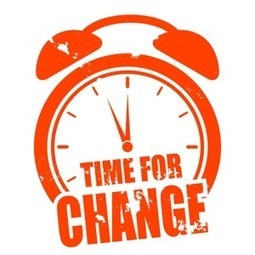In any improvement process, managing the influence of change and the anti-change culture will be one of the most difficult tasks.
Research and publish the best content.
Get Started for FREE
Sign up with Facebook Sign up with X
I don't have a Facebook or a X account
Already have an account: Login

Leadership, HR, Human Resources, Recursos Humanos, aptitudes and personal branding.May be you can find in there some spanish links.
Curated by
Ricard Lloria
 Your new post is loading... Your new post is loading...
 Your new post is loading... Your new post is loading...
|

Miklos Szilagyi's curator insight,
February 6, 2017 2:29 AM
Guardians or fact/idea-checkers who can have a very valuable contribution... and when they feel that their contribution is seen as important and valuable, the reframing could be successful...
|











